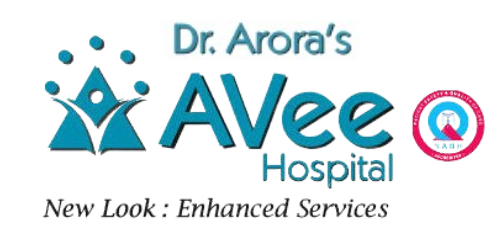Hey there, I’m Dr. Anshul Gupta, and I want to talk to you about something significant – cancer. I know it’s a scary word, but as an oncologist at Avee Hospital, I’ve helped countless people through this journey, and I want to share what I’ve learned with you.
When someone first hears they have cancer, I see that look in their eyes – fear, confusion, uncertainty. It’s normal to feel that way. But here’s the thing: a cancer diagnosis doesn’t mean the same thing for everyone. Your experience is unique, and understanding your situation is key to making the best decisions about your care.
Let’s explain what cancer staging means, how we determine it, and available treatment options. Think of cancer stages like a roadmap—they help us understand where we are and guide us to where we should go next.
Understanding Cancer Stages: What They Mean for Your Treatment
Cancer stages range from 0 to 4, with each stage indicating how far the cancer has spread in the body. Think of staging as a roadmap—it helps us understand where we are and guides the direction of our treatment journey.

Stage 0: The Beginning of the Journey
Stage 0 is like the very beginning of the journey. We’ve caught the cancer right where it started, before it’s had a chance to spread. I remember Sarah, a teacher who came to me with stage 0 breast cancer. She was initially terrified, but her outlook changed once she understood how early we caught it. A simple surgery, and five years later, she’s still cancer-free!
Stage 1: Localized Cancer
Stage 1 is when the cancer is small and contained. It’s like a plant just starting to grow, but it hasn’t spread its roots yet. The good news is that treatment at this stage is often really successful.
Understanding the different cancer stages is crucial for determining the most effective treatment approach. Treatment for Stage 1 cancers is often highly successful because we can target a specific area. Many patients with Stage 1 cancer go on to live long, healthy lives after treatment.
Stages 2 and 3: Regional Spread
Stages 2 and 3 mean the cancer has grown a bit more and might have spread to nearby areas. It’s like that plant is getting bigger and its roots are spreading. But don’t worry – we still have lots of effective treatments. I think of Raj, a businessman who came to me with stage 3 colon cancer. He was pretty discouraged at first, but after treatment, he’s been in remission for three years and is back to running his business with a whole new appreciation for life.
Stage 4: Metastatic Cancer
Stage 4 is when cancer has spread to other parts of the body. Now, I know that sounds scary, but I want you to know something significant: Stage 4 is not a death sentence. We’ve made fantastic progress in treatments, and many people with stage 4 cancer are living longer, fuller lives than ever before.
Priya, a mom of two, has been living with stage 4 breast cancer for over six years. She’s been there for her daughter’s wedding, welcomed her first grandchild, and still works part-time at her beloved library job.
When it comes to diagnosing cancer, we use a bunch of different tests—imaging, biopsies, and blood work. It can feel overwhelming, but I’m here to explain every step. I want you to understand what’s happening because knowledge is power, and you’re actively participating in your care.
The Cancer Diagnosis Process: What to Expect
Treatment options depend on your specific situation, but they might include surgery, radiation, chemotherapy, or newer therapies like immunotherapy. We’ll work together to find the best plan for you.
Choosing the right doctor and hospital is super important. At Avee Hospital, we’re not just about treating cancer—we’re about treating you as a whole person. We offer counseling, support groups, nutritional guidance, and more to help you through this journey.
I know a cancer diagnosis changes everything in an instant. The future might feel uncertain, and you might face unexpected fears. But I want you to know something: while I can’t promise the outcome, I can promise you won’t walk this path alone.
We’ve made incredible advances in cancer treatment. People are living longer, better lives after a cancer diagnosis than ever before. Whether you’re dealing with early-stage cancer or a more advanced case, there’s hope.
Diagnostic Tests: Looking Deeper
To confirm a diagnosis and determine the stage of cancer, we use several types of tests:
Imaging Tests: These allow us to see inside your body without surgery. Depending on your symptoms and suspected cancer type, we might recommend:
- X-rays for a basic view of dense structures
- CT scans for detailed cross-sectional images
- MRIs for high-resolution images, especially of soft tissues
- PET scans to see how tissues are functioning at the cellular level
Biopsy is often the definitive test for cancer diagnosis. We take a small sample of tissue from the suspected area and examine it under a microscope to look for cancer cells. Depending on the location and type of suspected cancer, there are several biopsy methods, from simple needle biopsies to surgical biopsies.
Blood Tests: While few cancers can be diagnosed solely through blood tests, they provide valuable information about your overall health and can sometimes show markers associated with certain cancers.
The Role of Your Cancer Specialist
As your oncologist in Ghaziabad, my role goes beyond ordering and interpreting tests. I’m here to explain what each test means, why it’s necessary, and what the results tell us about your condition. Understanding your diagnosis empowers you to be an active participant in your treatment decisions.
Cancer Treatment Options Based on Different Stages
Your cancer treatment plan will be tailored to your diagnosis, cancer stage, and overall health. Modern cancer treatment often involves a combination of surgery, radiation therapy, chemotherapy, and targeted therapies.
Early Stage Cancer Treatment (Stages 0-1)
Early-stage cancer detection significantly improves treatment outcomes and survival rates. Treatment is often less intensive and more effective for cancers caught at these early stages.
Surgery: For many early-stage cancers, surgery to remove the tumor may be the only treatment needed. Advances in surgical techniques now allow for more precise, less invasive procedures with shorter recovery times.
Radiation Therapy: Sometimes used after surgery to eliminate any remaining cancer cells, radiation therapy can be highly targeted to minimize damage to healthy tissues.
At Avee Hospital, we’ve implemented advanced radiation techniques that allow us to precisely target cancer cells while sparing healthy tissue. This results in fewer side effects and a better quality of life during treatment.
Intermediate Stage Treatment (Stages 2-3)
For these stages, we’ll discuss all available cancer treatment options to help you make informed decisions about your care. Treatment typically becomes more intensive and may include:
Combined Approaches: Often, we use surgery to remove the tumor, followed by chemotherapy or radiation to target any remaining cancer cells.
Neoadjuvant Therapy: Sometimes, we recommend chemotherapy or radiation before surgery to shrink the tumor, making it easier to remove.
Targeted Therapy: These newer drugs target specific genes or proteins contributing to cancer growth. Unlike traditional chemotherapy, which affects all rapidly dividing cells, targeted therapies focus on specific molecular changes unique to cancer cells.
Immunotherapy: This groundbreaking approach helps your immune system recognize and attack cancer cells. It’s been particularly effective for certain types of cancers and continues to show promising results in clinical trials.
Advanced Stage Treatment (Stage 4)
Our comprehensive cancer care approach addresses both the physical and emotional aspects of living with cancer. For advanced cancers, treatment focuses on:
Controlling Cancer Growth: While curing the cancer may not be possible, we can often slow its growth and spread, turning cancer into a manageable chronic condition.
Palliative Care: This specialized medical care focuses on relieving pain and other symptoms, improving quality of life for the patient and their family.
Clinical Trials: For some patients, participating in clinical trials offers access to cutting-edge treatments not yet widely available. At Avee Hospital, we can determine if you are eligible for any ongoing trials.
Finding the Right Oncologist Care
Choosing the right doctor for your cancer treatment is one of your most important decisions. It’s not just about finding someone with the proper credentials—it’s about finding a partner for your cancer journey.
What to Look for in a Cancer Specialist
Experience and Expertise: Look for a doctor specializing in your type of cancer. Ask about their experience treating patients with similar diagnoses.
Communication Style: You need a doctor who explains complex medical information in terms you can understand and who listens to your concerns.
Multidisciplinary Approach: Cancer treatment often requires a team of specialists. Your oncologist should collaborate with surgeons, radiation oncologists, pathologists, and other specialists to provide comprehensive care.
Why a Cancer Specialist Hospital Matters
Avee Hospital is the best cancer specialist hospital in Vaishali, Ghaziabad, and it has advanced diagnostic and treatment technologies. When you choose a specialized cancer hospital like Avee, you benefit from:
Comprehensive Services: All services are available under one roof, from diagnosis to treatment and recovery.
Advanced Technology: Access to the latest diagnostic tools and treatment technologies.
Supportive Care: Cancer affects more than just physical health. Avee Hospital offers counseling, support groups, nutritional guidance, and other services to promote overall well-being.
Starting Your Treatment Journey at Avee Hospital
Beginning cancer treatment can feel overwhelming, but you don’t have to navigate this journey alone. Here’s how we’ll get started:
Your First Consultation
During your initial visit, we’ll review your diagnosis, discuss treatment options, and address your questions and concerns. I encourage patients to bring a family member or friend for support and to help remember important information.
Come prepared with:
- Your medical records and test results
- A list of medications you’re currently taking
- Questions you want to ask
- A notebook to write down information
Developing Your Personalized Treatment Plan
No two cancer patients are identical, so no two treatment plans should be identical. We’ll develop a plan tailored to your specific needs:
- Cancer type and stage
- Overall health and medical history
- Personal preferences and goals
Support Beyond Medical Treatment
Cancer treatment isn’t just about medical procedures—it’s about supporting you as a whole person. At Avee Hospital, we offer top-class ICU Services:
- Counseling services for emotional support
- Nutritional guidance to help you stay strong during treatment
- Physical therapy to maintain strength and function
- Support groups where you can connect with others on similar journeys
Moving Forward with Hope
A cancer diagnosis changes your life in an instant. Your planned future suddenly feels uncertain, and you may face fears you never anticipated. As your oncologist, I want you to know that while I can’t promise the outcome, I can promise that you won’t walk this path alone.
Modern cancer treatment has made remarkable advances. People are living longer, better lives after a cancer diagnosis than ever before. Early-stage cancer patients often achieve complete remission, and even those with advanced disease are finding new hope through innovative treatments.
At Avee Hospital, Dr. Anshul Gupta is a highly experienced Ghaziabad oncologist specializing in personalized cancer care. Our team is committed to providing medical treatment and compassionate, personalized care that recognizes your unique needs and concerns.
If you or someone you love is facing cancer, I encourage you to reach out. Schedule a consultation at Avee Hospital, and let’s discuss how we can help you navigate this challenging time with knowledge, support, and hope for the future.
Remember, understanding your cancer diagnosis—including the stage of your cancer—is the first step toward taking control of your health journey. You deserve care that treats not just your cancer, but you as a whole person, with dignity, respect, and unwavering support.

